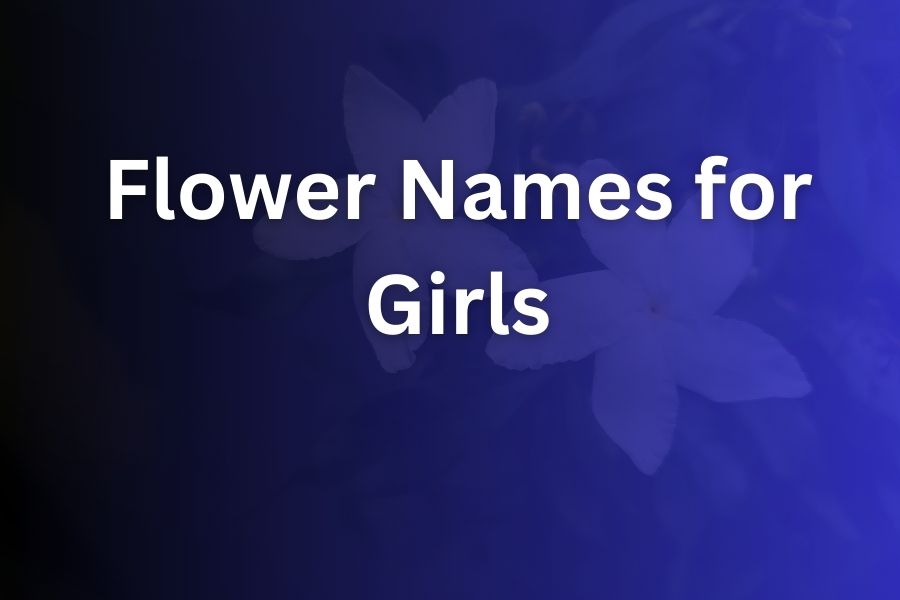Choosing a flower-inspired name for your baby girl offers timeless charm, natural beauty, and meaningful symbolism. Flower names have been growing in popularity in the U.S. as more parents seek names that reflect nature, softness, and elegance.
In this article, you will learn about the appeal of flower names for girls, popular and unique options, how to pick the right one, and practical tips for combining them with middle names in a U.S. American context.
Why flower names appeal to parents
Flower names bring a sense of freshness, femininity, and natural charm. They connect to life and growth, offering a poetic backdrop to your daughter’s identity. From classics like Lily and Rose to newer picks like Azalea or Marigold, floral names remain on trend for their gentle imagery and enduring appeal.
A flower name can feel both familiar and distinctive. It often signals softness without being overly cutesy. When you pick a floral name, you give your daughter a name rooted in beauty and meaning.
Popular flower names and what they mean
Here are some well loved floral names in the U.S., along with origins and meanings.
- Lily, derived from the flower lily, symbolizing innocence and purity.
- Rose, from the classic rose flower, representing love and beauty.
- Violet, based on the purple flower violet, associated with loyalty and modesty.
- Iris, comes from the Greek word for rainbow and the iris flower, blending classic myth with botanical beauty.
- Daisy, meaning day’s eye, the name of a cheerful white petaled flower.
- Azalea, from the Greek word meaning dry, a bright and popular floral choice.
- Marigold, English in origin, referring to the golden marigold flower, growing in popularity across the U.S.
These names span the familiar, such as Lily or Rose, as well as more distinctive choices like Azalea or Marigold, giving you many styles to choose from.
Unique or uncommon flower names worth considering
If you want something less common yet floral inspired, consider these picks.
- Camellia, a refined flower name with soft sound and vintage flair.
- Zinnia, a bold and colorful bloom with quirky appeal.
- Lavender, soft and fragrant, evoking calm and elegance.
- Clover, a meadow flower name that feels fresh and slightly unconventional.
- Amaryllis, Greek in origin, meaning to sparkle, a standout floral name.
- Posy, originally meaning a small bouquet, playful and vintage.
- Flora, from the Latin word for flower and also the Roman goddess of flowers.
These options provide personality and uniqueness while staying rooted in the floral theme.
How to choose the right flower name for your daughter
When you narrow down flower names for your baby girl, keep these factors in mind.
- Sound and flow, say the name aloud with your last name.
- Popularity, decide whether you prefer a very popular name or something more rare.
- Meaning and symbolism, choose a meaning that reflects your hopes for your daughter.
- Middle name and nickname potential, consider flexibility and usability.
- Cultural and family fit, make sure the name aligns with your family style.
By weighing these factors you will pick a name that fits beautifully within your family and feels meaningful from day one.
Flower names with trend data and cultural insight
Flower-inspired names continue to rise across the United States as nature themed choices gain momentum. Parents are choosing names like Ivy, Magnolia, Dahlia, and others as part of a shift back toward grounded, earthy, and meaningful baby names.
This trend suggests that you will be choosing a name that feels both modern and timeless.
Combining a flower name with a middle name
Here are some pairing ideas to consider.
- Lily Grace
- Azalea Mae
- Marigold Hope
- Iris Rose
- Camellia Joy
When combining, make sure the syllable count feels balanced and avoid overly similar endings.
Pros and cons of picking a flower name
Pros
- Instantly evokes beauty and nature
- Easy to spell and pronounce
- Timeless appeal with gentle imagery
- Many styles from classic to quirky
Cons
- Some names may feel overly sweet depending on preference
- Less common names may require repeated spelling
- Popular choices may feel less unique
- Strong floral association might feel limiting to some
Balancing these will help you decide whether a floral name fits the identity you envision for your child.
Tips for checking name suitability
- Look up recent name popularity data to see current trends.
- Say the full name out loud to test the rhythm.
- Consider initials and nicknames.
- Picture the name through all life stages.
Conclusion
If you want a name for your baby girl that carries floral elegance, symbolism, and timeless appeal, a flower name offers a beautiful option. Whether you choose a classic like Lily or Rose, or a more unique pick like Camellia or Zinnia, let your choice reflect your hopes, your family story, and the beauty you want your daughter’s name to hold. A thoughtful floral name can grow gracefully with your child and remain meaningful for a lifetime.
Frequently Asked Questions
Q1: Are flower names only used for girls?
While traditionally given to girls, some soft nature names can work for any gender depending on your preference.
Q2: Do flower names stay popular over time?
Some choices, such as Lily and Rose, stay consistently loved, while others rise and fall based on naming trends.
Q3: How do I make sure a flower name works with a last name?
Say the full name aloud, consider initials, and check the rhythm.
Q4: Will a floral name still sound mature when my daughter grows up?
Most flower names age well and can feel elegant and sophisticated.
Q5: Can I choose both a floral first name and middle name?
Yes, as long as the combination is not overly long or repetitive.
Q6: Are there international floral names to consider?
Yes, names like Leilani, Fleur, or Lotus bring cultural depth and beauty.
Q7: Are flower names still trending in the U.S.?
Yes, nature based names continue to rise across the country as parents seek meaningful choices.










